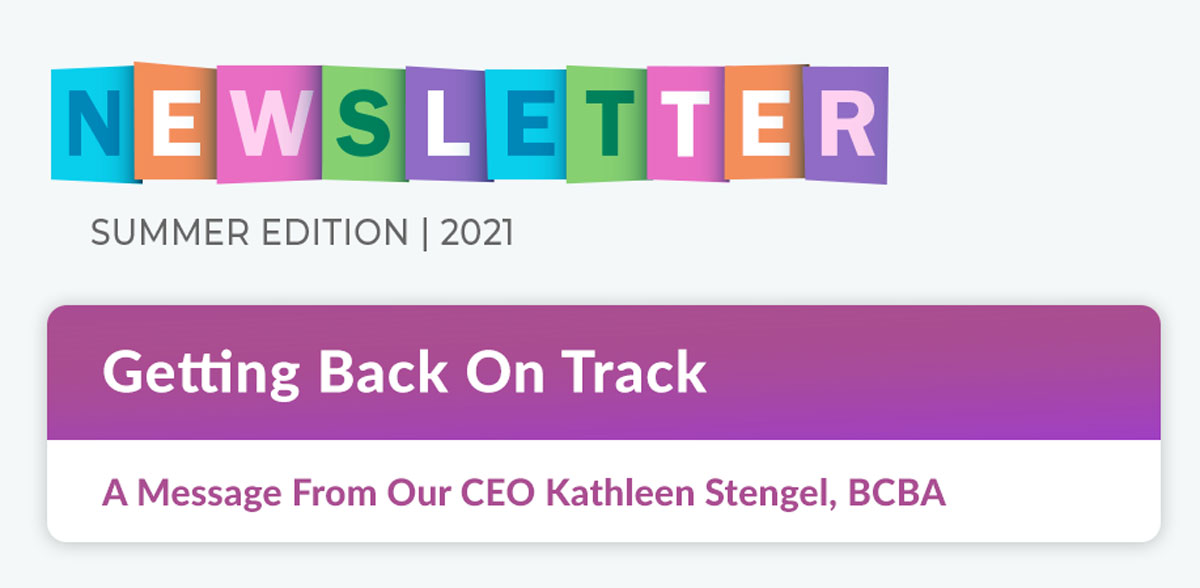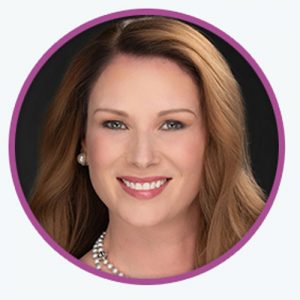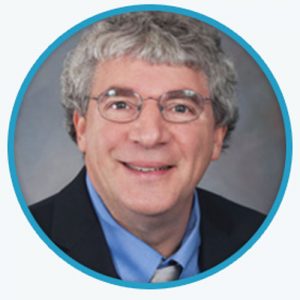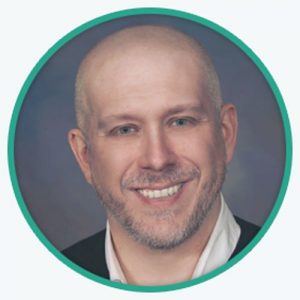
 As life begins to resemble some form of normalcy, we are starting to get back to our normal daily routines. As a parent, I am excited to have more options for my children beyond zoom. Sporting events are open, children’s activities are ramping back up and we are all realizing how much we have missed over the past 18 months. For many parents, missing in person pediatric checkups was a necessary safety precaution. While telehealth visits were appropriate for many, the deferment of in person pediatric checkups has resulted in missed opportunities for doctors to provide feedback, offer supports, and give guidance related to a child’s developmental milestones. Thankfully, it isn’t too late to get our kids back on track developmentally.
As life begins to resemble some form of normalcy, we are starting to get back to our normal daily routines. As a parent, I am excited to have more options for my children beyond zoom. Sporting events are open, children’s activities are ramping back up and we are all realizing how much we have missed over the past 18 months. For many parents, missing in person pediatric checkups was a necessary safety precaution. While telehealth visits were appropriate for many, the deferment of in person pediatric checkups has resulted in missed opportunities for doctors to provide feedback, offer supports, and give guidance related to a child’s developmental milestones. Thankfully, it isn’t too late to get our kids back on track developmentally.
Studies indicate that the negative, yet unavoidable, environmental factors that were experienced over the past year, including social isolation, restricted language and lack of communication, could impact a child’s development. It will be important in the coming months and years for parents and caregivers to monitor their children’s development and bring any concerns of missed milestones to the attention of their pediatrician or primary care provider.
There are also activities parents can do at home with their children to promote healthy development. Members of our early child development team have created a resource page on our website for parents that includes a milestones tracker, list of home activity suggestions, books to read, links to community resources and answers to frequently asked questions.
Our team is also opening additional appointment times for medical evaluations, developmental testing (including ADOS-2) and ancillary services, including a Virtual Open Art Studio for middle school aged children. During the pandemic we opened five ABA clinics for children with autism and other developmental delays in New Jersey and Pennsylvania and have more planned to open this year. We remain committed to our patients and our communities and will do what we can do to provide comprehensive and coordinated supports and services where and when needed.
As we continue to grow our organization and expand services, we also remain committed to our value of excellence. We hold our clinical team to the highest standards which is reflected in our patient outcomes and testimonials. Our value of excellence is also reflected in feedback from funders and organizations as most recently we received several clinical and operational audits with zero deficiencies.
Our care coordinators, known as Hope Ambassadors, are available by phone or through our website to guide parents, case managers and adult patients through understanding what services they may need, reviewing insurances, and scheduling appointments. I welcome you to learn more about NeurAbilities Healthcare.

 In our personal lives there are many choices to make every day. Some may have minimal impact, but others may be life changing. How do we decide? We draw upon our education, training and experience. Possibly we base it upon empirical research or anecdotal information. Other times we may base it on belief or faith, or the influence of family, friends, or professional colleagues. Ultimately, as we arrive to a conclusion, it is important to assess the outcomes of our decisions. At NeurAbilities we ask: How can families and stakeholders determine the effectiveness of our unique approach to health care delivery? Are we addressing gaps in care? Are we providing cutting-edge diagnostics and treatments? Are we engaging in the practice of Quality Improvement (QI), leading to outcomes, processes or structural change?
In our personal lives there are many choices to make every day. Some may have minimal impact, but others may be life changing. How do we decide? We draw upon our education, training and experience. Possibly we base it upon empirical research or anecdotal information. Other times we may base it on belief or faith, or the influence of family, friends, or professional colleagues. Ultimately, as we arrive to a conclusion, it is important to assess the outcomes of our decisions. At NeurAbilities we ask: How can families and stakeholders determine the effectiveness of our unique approach to health care delivery? Are we addressing gaps in care? Are we providing cutting-edge diagnostics and treatments? Are we engaging in the practice of Quality Improvement (QI), leading to outcomes, processes or structural change?
In 2008, we were one of six statewide grantees for the NJ Governor’s Council for Medical Research and Treatment of Autism-Clinical Enhancement Centers. We had lofty goals, but through perseverance, accomplished our objectives and aims. In 2016 the American Academy of Neurology (AAN) Child Neurology Quality Measurement Work Group delineated a series of measures for determining the delivery of quality child neurology services. It is gratifying that NeurAbilities has met the majority of these goals. For example, many families reach a point where their child neurologists will not see them past 18 years of age. This adolescent to adult transitioning is often not accomplished, leading to difficult situations for families, and developmental regression of patients. NeurAbilities’ ability for providing continuity of care and lifespan services has solved this problem. The work group also emphasized the need for providing genetic testing to those with developmental disabilities, something we accomplish with our advanced NeuroGenomics program that translates complex genetic data into clinically useful information. Additionally, the measurement set includes the ability to provide neuropsychological assessments for patients with Epilepsy, something we do routinely, even taking it a step further by performing neuropsychological evaluations for an array of neurological and neurodevelopmental disorders and disabilities. The task force also emphasized the need for continuity of care, which we provide under our Specialty Care Medical Home model of care for special needs populations.
NeurAbilities’ behavioral team adheres to strict standards of applied behavior analysis (ABA). These include initial assessments determining skill deficits as well as defining problem behaviors, subsequently implementing a targeted behavior program that is overseen by Board Certified Behavior Analysts. During therapy sessions, observational behavioral data is collected, and a visual graph can assure that behavioral progress is being made, or if not, that the behavior plan is appropriately modified to achieve success. Furthermore, government and insurance companies have strict regulations for the provision of ABA services that they constantly monitor, and we have won praise from auditors.
Ultimately, we are motivated to provide quality clinical services resulting in tangible outcomes for the persons we serve. No company will be sustainable if their customers are not satisfied. To track our customer satisfaction, NeurAbilities has adopted the Net Promoter Score (NPS) with a systematic feedback loop to assure that our doctors and administration continue to recognize areas of our clinical and operational performance that need improvement from the patient perspective. Just as our diagnostics drive treatment, the feedback our patients provide drive continuous quality improvement.
Overall, our quality and safety assessment and outcome process is ongoing and constantly evolving. We have met and exceeded industry and professional standards in most areas but continue to be vigilant and broadminded concerning ways we can improve and better serve our community. To achieve our goals, we will to turn to our patients for ongoing feedback. If you are a patient of NeurAbilities, please keep an eye out for our NPS Survey and take the opportunity to share your response. Together, NeurAbilities will continue to exceed industry standards for quality patient care and transform the lives of patients through precision medicine, behavior sciences and therapeutic treatments with compassion, dignity and respect.

 A child’s development is a journey. At NeurAbilities Healthcare we have compiled a free resource center to empower parents and caregivers to understand if your child’s development is on track. If you have concerns, it is important to speak with your doctor or a developmental specialist.
A child’s development is a journey. At NeurAbilities Healthcare we have compiled a free resource center to empower parents and caregivers to understand if your child’s development is on track. If you have concerns, it is important to speak with your doctor or a developmental specialist.

 Not many college students know exactly what they want to do after graduation, and Michael Baniewicz was no exception. That is, until he started working at his first job.
Not many college students know exactly what they want to do after graduation, and Michael Baniewicz was no exception. That is, until he started working at his first job.
“My first job out of college was working in a brain injury rehabilitation center as a direct care provider,” remembers Mike. “I was so fascinated by the role of the neuropsychologists who worked with me. Their job combined science with problem solving and creativity that ultimately resulted in helping people. I felt intrigued and compelled to learn more so I returned to school for my graduate degree.”
During graduate school years, Mike identified a gap in services for an underserved and misunderstood teenage population and focused his efforts there.
“It was in my work with the teenage population that I learned a lot about autism. I realized that by incorporating principles of neuropsychology with creative problem solving, I could offer robust treatment plans that made a difference in the lives of my teenage patients, especially those with autism. It was an ‘a-ha!’ moment for me. Not only did I love what I was doing, but I loved how it positively impacted my patients. As a result, I went back for my doctoral degree.”
While Dr. Baniewicz found his calling in the practice of neuropsychology, he also identifies the importance of having professionals from multiple disciplines working together for the benefit of a patient.
“Working at a practice with a multi-disciplinary model, such as NeurAbilities, provides clinicians with access to additional information and insights that could impact diagnoses and treatments. Our interdisciplinary team meetings allow us to discuss differentials, share thoughts and come to conclusions about patient care. It is such a dynamic approach and leads to best outcomes for our patients. It’s incredible.
Dr. Baniewicz works with a wide variety of ages, ranging from toddlers to adults. His areas of expertise include:
· Attention-Deficit/Hyperactivity Disorder (ADHD)
· Autism Spectrum Disorder (ASD)
· Epilepsy
· Learning disorders
· Traumatic Brain Injury (TBI)
He has several specialized training certificates, including Certified Brain Injury Specialist, Trauma-Focused Cognitive Behavioral Therapist and he is trained on the Autism Diagnostic Observation Schedule, version 2 (ADOS-2) to evaluate for autism.
When asked what he first recommends to families whose children are facing neurological concerns, Dr. Baniewicz recommends, “Regardless of diagnosis or challenges, all children need love and positive attention from their parents. Just love your child!”
Dr. Baniewicz may not have known in college that he wanted to be a neuropsychologist, but, clearly, he was meant to help people. And help people he does.
Dr. Baniewicz provides neuropsychological evaluations in Pennsylvania and diagnostic psychology evaluations for those seeking behavioral health interventions. He also supervises behavioral health services in Pennsylvania.

 As we gradually emerge from the solitude of quarantine, some may find it difficult to re-establish social connections and re-engage in community activities, especially adolescents. After more than a year of sitting home, alone in many cases and oftentimes on electronic devices, adolescents are having to deal with the stressors caused by the pandemic as they try to re-establish social connections. The CDC reports that “many adolescents’ social, emotional and mental well-being has been impacted by the pandemic. Trauma faced at this developmental stage may have long-term consequences across their lifespan.” There are things, however, that parents and caregivers can do to support their children through this transition, including recognizing their stress, keeping them healthy and helping them stay connected.
As we gradually emerge from the solitude of quarantine, some may find it difficult to re-establish social connections and re-engage in community activities, especially adolescents. After more than a year of sitting home, alone in many cases and oftentimes on electronic devices, adolescents are having to deal with the stressors caused by the pandemic as they try to re-establish social connections. The CDC reports that “many adolescents’ social, emotional and mental well-being has been impacted by the pandemic. Trauma faced at this developmental stage may have long-term consequences across their lifespan.” There are things, however, that parents and caregivers can do to support their children through this transition, including recognizing their stress, keeping them healthy and helping them stay connected.
Even though communities are “opening back up,” schools are closing for the summer and there are not a lot of options for adolescents to make social connections. Kathleen A., mother of five children, including a 12-year-old Jacob, shares, “Playing video games all day has become the new go-to activity. It is familiar and has become a place of comfort over the past year, not only for my children but for their friends, too. It is time for them to break this habit and find their smile again.”
The Virtual Open Art Studio was created with this very goal in mind. “Pre-teen and early teen years can be a difficult time,” comments Alexandra Back, Director of Creative Arts Therapies and moderator of the group. “The effects of social isolation and worry caused by the pandemic only compounds the challenges faced during this stage of life. Having a safe place to talk about relevant topics is important and necessary.”
Oftentimes adolescents don’t know what to say to one another or they are worried about being accepted. The Virtual Open Art Studio provides a safe, nurturing environment where participants can share what’s happening in their world and discuss healthy habits while creating art. It is not therapy, but it is therapeutic. “Participants typically don’t even realize the connections they are making because they are busy with their art project. By the second or third session everyone is laughing, sharing their art with the group and just having fun.”
“When I first suggested this opportunity to my son he quickly said, ‘no, I don’t want to do that. I won’t know anyone’. But I didn’t give up,” recalls Kathleen. “Knowing how much he enjoys drawing and art and how much he could benefit from healthy interactions with others I continued to encourage him. I finally convinced him when I suggested that he just give it a try.”
Colleen B., mother of 11-year-old participant, Rachel, reflects on the past year “My daughter has had a very hard time engaging in activities outside of the computer, other than school. This class seemed like a great way to introduce her to kids her own age in a format that made her feel comfortable.”
While many of the kids in this group were reluctant at first to join, the first session did not disappoint.
“After my son completed the first session he said ‘I can’t wait until next week’s class,’” recalls Kathleen. “He’s finding his smile again. I feel like this virtual open art studio has been a low-pressure way to gradually re-engage my son with other kids his age.”
Colleen identified a similar response from her daughter, “having an opportunity to interact with kids her own age has increased Rachel’s confidence. She really looks forward to the weekly sessions.”
The Virtual Open Art Studio is now enrolling middle school aged children, ages 11 to 14 years old, for a 5-week summer session starting Tuesday, July 27th (classes: 7/27, 8/3, (no class 8/10), 8/17, 8/24, and 8/31)! Class is 4 to 4:45pm and the cost is $99. Email Alexandra Back to enroll.


Stay tuned to our website events page for more information on these future events!
Spreading the Love: Dividing Time Among Siblings
When there are children with different levels of abilities in a household, it can be challenging for parents to divide their time equitably (and have some time for themselves). In this presentation, learn strategies for creating structure to address the needs of all children in a home, limit homelife chaos, and set aside time for self-care.
Is Co-sleeping a pain in your neck?
Many parents will (initially) find some conveniences associated with sharing a bed with their young children. After weeks, months, or years, however, co-sleeping may eventually result in a crick in your neck and a difficult habit to break. In this presentation, learn how to transition your sleepy child back to his or her own bed!
Whining, Crying, and Screaming, Oh My!
Many children quickly learn that whining, crying and screaming can be very effective in getting what they want. Unfortunately, this approach can be very stressful and upsetting to parents. If your child has fallen into the habit of whining, crying, or screaming to get what he or she wants, tune in to learn what you can do to encourage more positive approaches.
Also, join us for these 1-hour presentations:
Be a Champion of Your Child’s Development
Join our panel of experts to learn about tracking developmental milestones in your child and accessing resources if there are gaps in or concerns with your child’s development. Early detection and treatment of developmental and behavioral concerns in a child leads to improved outcomes. It is important to discuss your concerns with your pediatrician and access additional supports early. In this panel presentation, hear from a developmental pediatrician, early intervention representative, psychologist and behavior analyst about the steps to take, what to expect from evaluations and therapeutic opportunities that can support a child’s development. Open to parents, caregivers, teachers, and professionals.
What Does Epilepsy Have to do with Autism?
Presented by Mark Mintz, M.D., Chief Medical Officer
Epilepsy can occur in up to 40% of individuals with Autism Spectrum Disorders (ASD), and is an increasing risk factor with age. Learn the signs and symptoms of seizure activity and whether staring behavior can be a cause for concern. This free workshop will all explore when to seek medical attention and what to do when seizures are identified in individuals with ASD.



